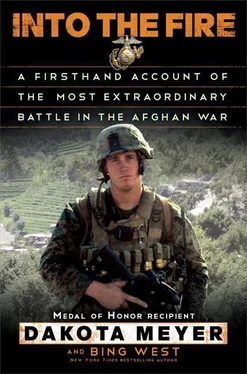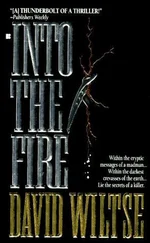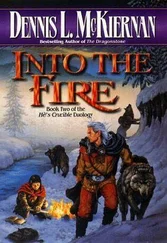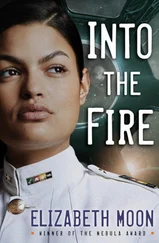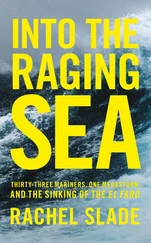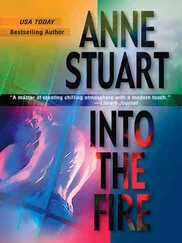The civilian official in the discharge office glanced at my medical record and pulled out an article about the Ganjigal fight.
I wasn’t going to think about it. All I knew was that I was not going to let myself become a mental cripple for life. I was stronger than that. I would always regret not saving my guys, but, as for the people I killed, that is what gave me what little peace of mind I had. They were the enemy. That’s what you do to the enemy. That part was not going to upset me. The people who started it are the guilty parties, and I was still figuring that was Mr. Bin Laden. Send him the bill. In fact, that bill was about on the way.
After the PTSD clinic, I returned to Kentucky. It was the winter of 2010 and I warmed myself up by slipping back into hard drinking each night. I wasn’t headed to some college where Lt. Johnson would be the military instructor and we’d climb mountains with Staff Sgt. Kenefick and Doc Layton. And I wasn’t heading back to finish those bastards above the Kunar River. Dad watched me out of the sides of his eyes.
All of us survivors from Ganjigal were spreading out into the culture. Swenson was up in Seattle somewhere, mustering out of the Army. Staff Sgt. Juan Rodriguez-Chavez, the best Humvee driver who ever lived, was somewhere up near Chicago. Fabayo was in Virginia. Both of them had gone home to a Navy Cross, and they deserved it and more. Swenson and I were up for something, but I didn’t believe it would happen or even care—I knew what I had done, and the result was zero.
My friend Hafez, an Afghan, was still stuck at Monti, looking for a way to the States. He had earned entry, for sure, but wasn’t getting it. And Monti was deteriorating.
“Am I going to die? Am I going to be all right?” The words were pretty standard, given the blood all over the poor guy. “Am I going to be okay?”
It took me a minute to realize where I was. I had been driving back to the farm from some buddy’s house, and I came across a pickup truck on its side. It was like something you would see at Dab Khar. Smoke was coming out from the engine as if it had just taken an RPG.
I pulled over quickly and ran low to the truck, even though there were no bullets hitting around me. I jumped up on the hood and opened the driver’s door skyward—it’s heavy when the vehicle is on its side like that. There was blood all over the windshield and the interior. The driver, a young guy, was hung up in his seat belt with blood pouring out of his left arm, sliced to the bone. I lifted him out, which was hard, though I didn’t feel my back hurting at all, which was good. I got him down to the ground, took off his belt, and cinched it tightly around his biceps to stop the bleeding.
Another driver had stopped and called for an ambulance. It wouldn’t come for a good twenty minutes.
He kept asking, “Am I going to be all right?”
“Sure. You’re fine. I’ve seen a lot worse than this. You’re fine. You’ll be fine.” The siren finally. The smell of his blood, the weight of his body in my arms, it was somehow… I don’t know what it was. It wasn’t bad. It was a release. It felt very good to help save someone.
I shouldn’t have read the Ganjigal investigations that came out in 2010. What did I gain by arguing with a computer screen, stewing because as a corporal I hadn’t been asked for my opinion? Venting wouldn’t change the past. Words, words, words. It seemed to me bureaucrats were pointing fingers in a circle. Since everyone had done something wrong, no one person was held accountable.
That wasn’t quite right. There was one person accountable, with a straight line of sight to Ganjigal—me. After Rod and I shot those dudes off our truck, a quick dash another quarter-mile would have placed us next to the terraces where my team was. One hundred meters—ten seconds for a runner; thirty seconds for our truck. One quick sprint in.
The investigation had aimed in the wrong direction. I told my team I’d come for them, and I’d pulled off just because of some pressure. I had clutched as badly as those officers back in the TOC at Joyce.
I occasionally called my Army and Marine buddies, and spoke by Skype a few times with my Afghan friends. I hadn’t seen an active-duty grunt in months. Fabayo and Rodriguez-Chavez were due to receive Navy Crosses at the Marine base in Quantico, but I couldn’t get enough time off to fly back east. Swenson and I had been recommended for the Medal of Honor. We knew, though, that the award was usually downgraded upon review. When I drank, which was too often, I’d laugh at the absurdity. I had screwed up big-time. My achievement was losing my brothers. The Marine Corps would come to its senses and I’d never hear another word from another devil dog. I had no idea what was in front of me, and I didn’t care.
The bottom of the barrel for me came on a country road that is now called the Dakota Meyer Highway in the spring of 2010. After work that night, I visited with some friends and my new best friend, Jack Daniel. By the time I left for home, I had drunk enough liquor to fail a Breathalyzer, but not so much that I was driving erratically.
All I could do was steer and think. I couldn’t take a walk, turn on the TV, or read a book to distract my mind. The emptiness of my life was the dark all around me, with nothing to see in any direction.
Four years ago, I had left the farm for adventure and a new beginning. The Corps had shaped me and I had arrived in Afghanistan, confident I’d do well in the combat. Sure enough, up at Monti I had emerged as the Young Gun. Every day brought fun and danger against the backdrop of spectacular mountains. It was fun stuff, shooting thousands of rounds, not losing many people and not seeing the damage you inflicted. There was no weapon I couldn’t handle, and my team trusted me to get them out of any hot spot my cockiness put us in.
But when it counted the most, I wasn’t with them. They weren’t trained to do my job. Gunny Johnson didn’t spend every day behind the 240. Staff Sgt. Kenefick wasn’t comfortable with weapons or angles of fire. Doc Layton wasn’t a fighter, and Lt. Johnson didn’t adjust fire missions.
“We aren’t worried; we know you’ll get us out if anything goes bad, Meyer!”
Well, I didn’t, Lieutenant. I was a load of worthless shit, not there when you needed me.
Around three in the morning, I pulled my truck into the driveway of a shop owned by my high school friend Derek Yates, and cut the engine. I turned on the cab light and fished out my cell phone. It wasn’t right to burden my dad, but I wanted to connect one last time with someone.
I pecked out a text message to my friends Ann and Toby. They had known me since I was a toddler, but they didn’t know me that well, did they? Here I was back where I had started, with an aluminum bracelet with two names on each wrist.
That’s what I had done with my life—lost four brothers.
I can’t do it anymore , I typed.
I reached into the glove compartment, where I kept my Glock. I always kept a full magazine with a round chambered in the pistol. A Glock doesn’t have a manual safety. You pull the trigger, and the weapon fires.
I stuck the gun to my head, squeezed the trigger.
Click .
Nothing. Nada . No round in the chamber. As you can imagine, I sat there, quite sobered up and in double shock. Suicide is terminal self-revulsion. I was mixed up, but I knew my team would be disappointed in me. Staff Sgt. Kenefick would give me hell, which was where I would be. Bad ending. That was not going to happen.
But, who had unloaded my pistol? Right on the spot, I knew who had done it. Have I ever talked to that person about it? No.
Читать дальше
